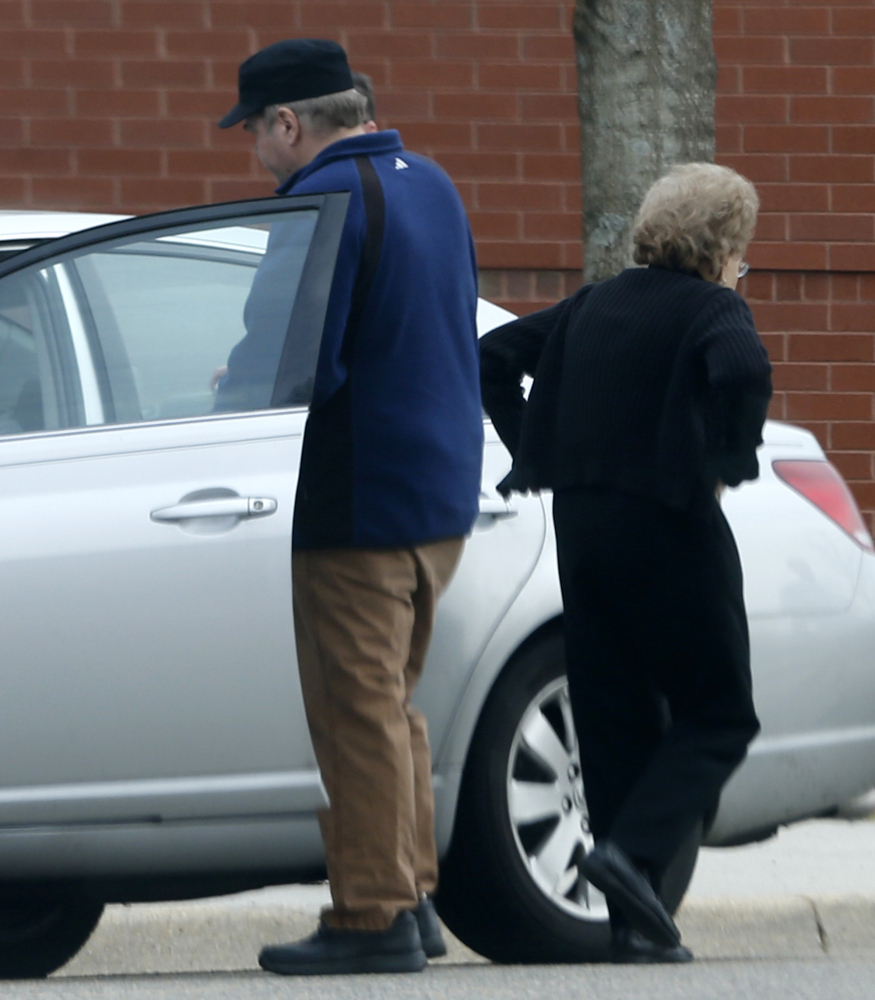The last man to shoot an American president now spends most of the year in a house overlooking the 13th hole of a golf course in a gated community.
He likes taking walks, plays guitar and paints, eats at Wendy’s and drives around in a Toyota. Often, as if to avoid detection, he puts on a hat or visor before going out.
John Hinckley Jr. lives much of the year like any average Joe: shopping, eating out, watching movies.
Hinckley was just 25 when he shot President Reagan and three others in 1981. When jurors found him not guilty by reason of insanity, they said he needed treatment, not a lifetime in confinement. The verdict left open the possibility that he would one day live outside a mental hospital.
For the past year, under a judge’s order, Hinckley has spent 17 days a month at his mother’s home in Williamsburg, a small southeastern Virginia city. Freedom has come in stages and with strict requirements: meeting regularly in Williamsburg with a psychiatrist and a therapist, volunteering. It has all been part of a lengthy process meant to reintegrate Hinckley, now nearing 60, back into society.
Court hearings are due to begin Wednesday on whether to expand Hinckley’s time in Williamsburg further – possibly permanently.
That leaves some in the place he’d call home wondering: Is he ready for life on the outside? And are they ready for him?
Local real estate agent John Womeldorf always points out the street where Hinckley’s 89-year-old mother lives if he’s showing a house in the same resort community. He doesn’t want new homeowners to be surprised after they’ve moved in.
“I just matter-of-factly ask them, ‘Do you remember the guy that shot President Reagan?’ And usually they do and I say, ‘Well his mother lives here and he gets released a number of times a year and comes and stays with his mom,’ ” Womeldorf said.
The news has deterred maybe one or two buyers, he said. “It’s been a non-issue.”
Not so for others. Cabot Wade, a musician who gave Hinckley guitar lessons, said he never felt Hinckley was violent or dangerous. Nevertheless, he said, “Nobody will touch him with a 10-foot pole.”
In hearings before U.S. District Judge Paul L. Friedman, doctors have testified that Hinckley’s psychosis and major depression have been in remission for decades and that, while he still has a narcissistic personality disorder, its effects have diminished. Psychological testing shows Hinckley’s dangerousness risk is “decidedly low,” Hinckley’s longtime attorney, Barry Levine, said during the most recent hearings over his release that ran intermittently from late 2011 through 2013.
For decades, Hinckley was confined to St. Elizabeths Hospital in the nation’s capital. But Friedman has allowed him freedom in stages. Starting in 2006, Hinckley was allowed three-night trips to Williamsburg, then four, then more. In late 2013, Friedman approved the current 17-day stretches.
In Wednesday’s hearing, St. Elizabeths and Levine are expected to call for even more freedom. Prosecutors, however, have consistently opposed Hinckley’s release, arguing he has a history of deceptive behavior and troubling relationships with women. During the last hearings, they cited a July 2011 incident in which he went to a bookstore instead of a movie and then lied about it. The Secret Service, whose agents sporadically tail Hinckley, reported he looked at shelves that contained books about Reagan and his attempted assassination, though he didn’t pick anything up.
Experts not involved in Hinckley’s case said that people like him can successfully transition back to a community and that there are tools to evaluate whether they remain dangerous, though there are limits. That’s why the standard approach is to give freedom incrementally and monitor, said Dr. Paul Appelbaum, a professor of psychiatry at Columbia University and a past president of the American Psychiatric Association.
Several organizations turned Hinckley down for volunteer positions before the librarian at Eastern State Hospital, a facility for the mentally ill, agreed to take him. “Not everyone was real happy about it,” Sandra Kochersperger said.
Hinckley was “very quiet” and “very sweet,” she said. He made copies and shelved books.
Copy the Story LinkSend questions/comments to the editors.



Success. Please wait for the page to reload. If the page does not reload within 5 seconds, please refresh the page.
Enter your email and password to access comments.
Hi, to comment on stories you must . This profile is in addition to your subscription and website login.
Already have a commenting profile? .
Invalid username/password.
Please check your email to confirm and complete your registration.
Only subscribers are eligible to post comments. Please subscribe or login first for digital access. Here’s why.
Use the form below to reset your password. When you've submitted your account email, we will send an email with a reset code.